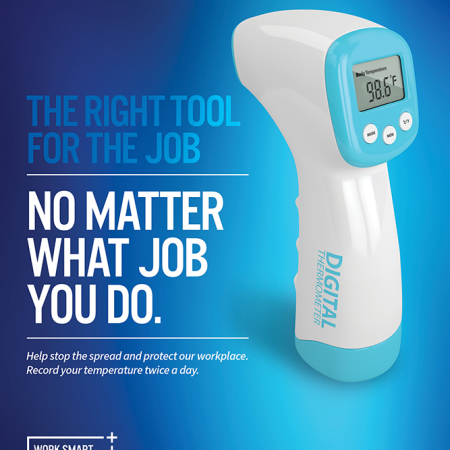DAVID PARKER
Former Interim Vice Chancellor and General Counsel for UNC–Chapel Hill
David Parker is the former interim vice chancellor and general counsel for the University of North Carolina at Chapel Hill, having retired from the university in 2016. His experience includes serving as an assistant attorney general for the North Carolina Department of Justice, as well as associate vice chancellor and deputy general counsel for UNC. For ten years, Parker specialized in technology transfer and research contracting law. At UNC, he also provided counsel for the School of Medicine, the UNC Health Care System, and the Office of Technology Development.

Exploring the Legal Complexities of the Federal Vaccination Mandates
In September President Biden announced a new national strategy to combat COVID-19 that included vaccination directives affecting millions of US employees. In designing these mandates the Biden Administration had to navigate complicated principles of federalism in order to legally extend the mandates to workers beyond those employed directly by the federal government. Through the 10th...


Creating an Employee COVID-19 Vaccination Requirement: A Risk-Management Endeavor
Since the onset of the COVID-19 pandemic, the estimated direct financial costs to U.S. businesses from employees who have suffered from COVID-19 have been staggering: $50.5 billion, including $10.7 billion in disability wage payments, $15.5 billion in sick leave wages, and $22.7 billion in employee benefits as of April 2021 (Integrated Benefits Institute). These projections...


Vaccine Requirements in Higher Education: Managing Vaccine Proof and Waivers
Most colleges and universities won’t be in a position to require all members of their communities to be vaccinated against COVID-19 until at least summer or fall of 2021. As of December 2020, vaccines are being made available under FDA Emergency Use Authorizations (EUAs), and federal law requires that recipients of products permitted under EUAs...


A Clear Path Forward Must Exist for Those Who Can Receive the COVID-19 Vaccine and Those Who Cannot
In December 2020, the U.S. Food and Drug Administration approved two brands of the COVID-19 vaccine, produced by Pfizer and Moderna, for emergency use authorization. A third vaccine, made by Johnson and Johnson, received the same authorization in February 2021. With this authorization, and the ensuing nationwide vaccine rollout, millions of individuals across the nation...


Proof of Vaccination as a Passport to Goods and Services: Practice Tips for Businesses and Institutions
In the coming months, COVID-19 immunizations in the United States will extend beyond priority groups to the general population. Businesses, under increasing pressure to draw back clientele who have stayed away during the pandemic, may see requiring their customers to present proof of vaccination as a way to draw customers by guaranteeing a safe environment....


Anticipating COVID-19 Vaccine: What Should Institutions of Higher Education and Employers Do Now?
The U.S. Food and Drug Administration (FDA) has now issued Emergency Use Authorizations (EUAs) for two COVID-19 vaccines, with more in the pipeline. With this encouraging development, employers and institutions of higher education (IHEs) must prepare to grapple with whether they can require employees or students to be immunized as a condition of employment or...
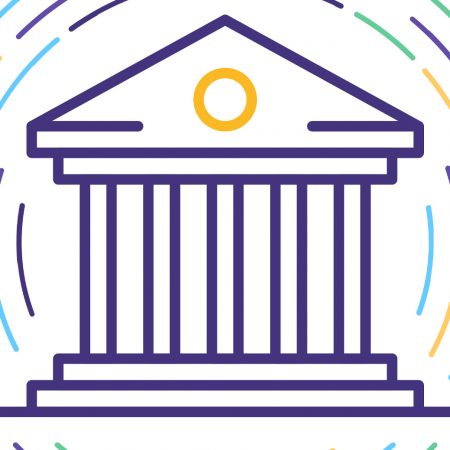

Duty To Warn of COVID-19 Infections
Suppose you are a university president conducting a meeting in your office in late 2019. Your assistant interrupts with an urgent call from the chief of your campus police department. The chief tells you that a grad student has discovered a canister of what appears to be poisonous gas, connected to a detonator, in a...


Essential Considerations for Contact Tracing
COVID-19 is altering traditional approaches to educating students and conducting research at colleges and universities across the U.S. As a large majority prepare to welcome students, faculty, and staff back to campus for the fall 2020 semester, a substantial investment of time and resources is required to secure their safety and well-being. Legal duties, ethical...
Essential Considerations for Digital Contact Tracing
COVID-19 is altering traditional approaches to educating students and conducting research at colleges and universities across the U.S. As a large majority prepare to welcome students, faculty, and staff back to campus for the fall 2020 semester, a substantial investment of time and resources is required to secure their safety and well-being. Legal duties, ethical...
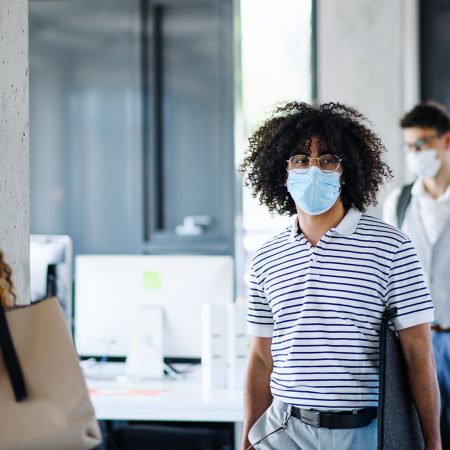

Quarantine and Isolation—Legal Considerations for Colleges and Universities
Most colleges and universities have considerable experience in addressing outbreaks of highly contagious serious diseases among their students, such as meningitis or measles, through mandatory quarantine or isolation. But COVID-19 presents a public health challenge not seen in the United States in decades, and institutions of higher education (IHEs) planning to reopen their campuses during...
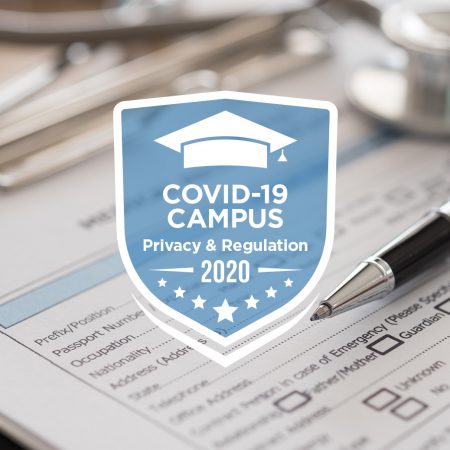

Screening Students and Staff for COVID-19 When Campuses Reopen: Key Legal Data Use and Security Considerations for Higher Education Institutions
Most U.S. colleges and universities plan to reopen their campuses, wholly or in part, for the Fall 2020 Semester. Screening returning students and employees for COVID-19 infection will be a necessary component of reopening campuses responsibly and safely. Such screening will certainly involve solicitation of confidential medical information and may include testing for the virus....
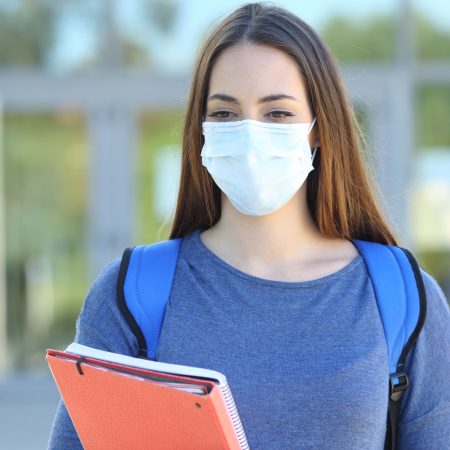

Moving to a New Normal
As colleges and universities plan and prepare to reopen following the COVID-19 pandemic, each one is charting a path to a new normal and beginning to establish what this may look like. All institutions of higher education (IHEs) are navigating new ground. However, one of the most accurate things we can say about a “new...
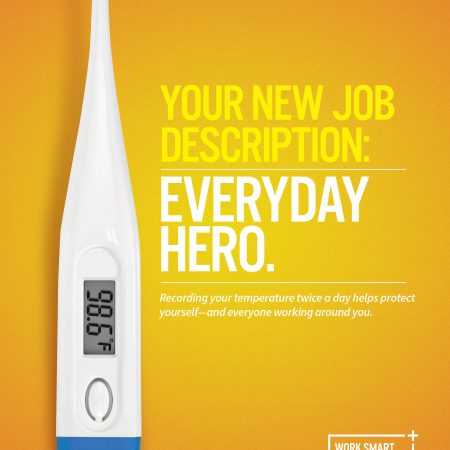

Work smart. Work safe. Work well.
View the most recent IDAC COVID-19 poster series for the workplace.


Washing your hands often is smart. Washing them correctly is even smarter.
One of the most effective ways to protect yourself and your co-workers is to wash your hands correctly.

